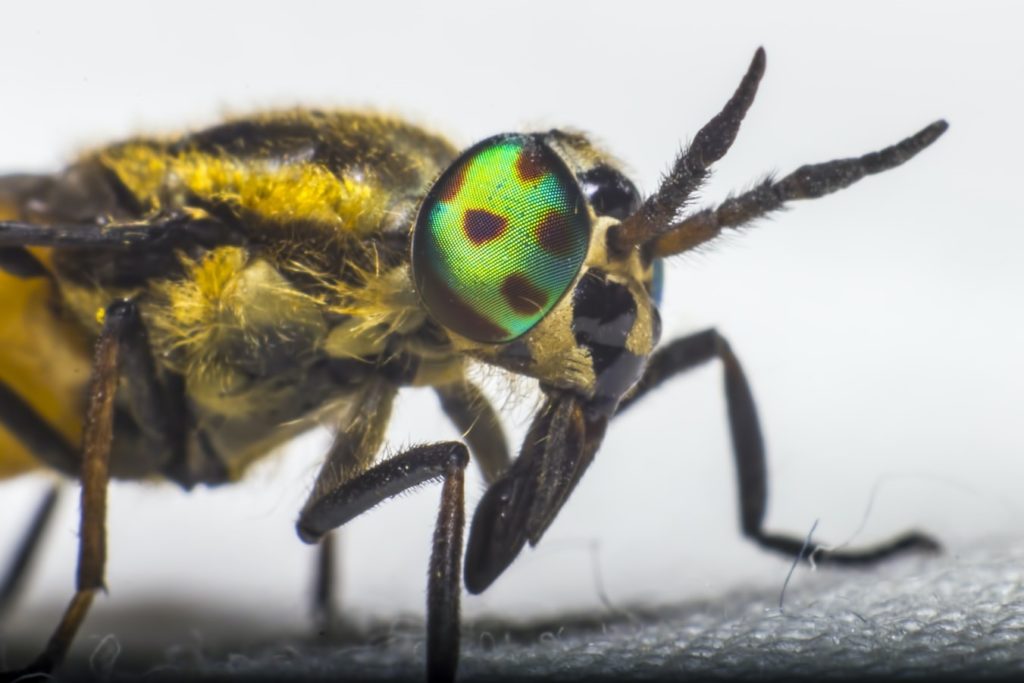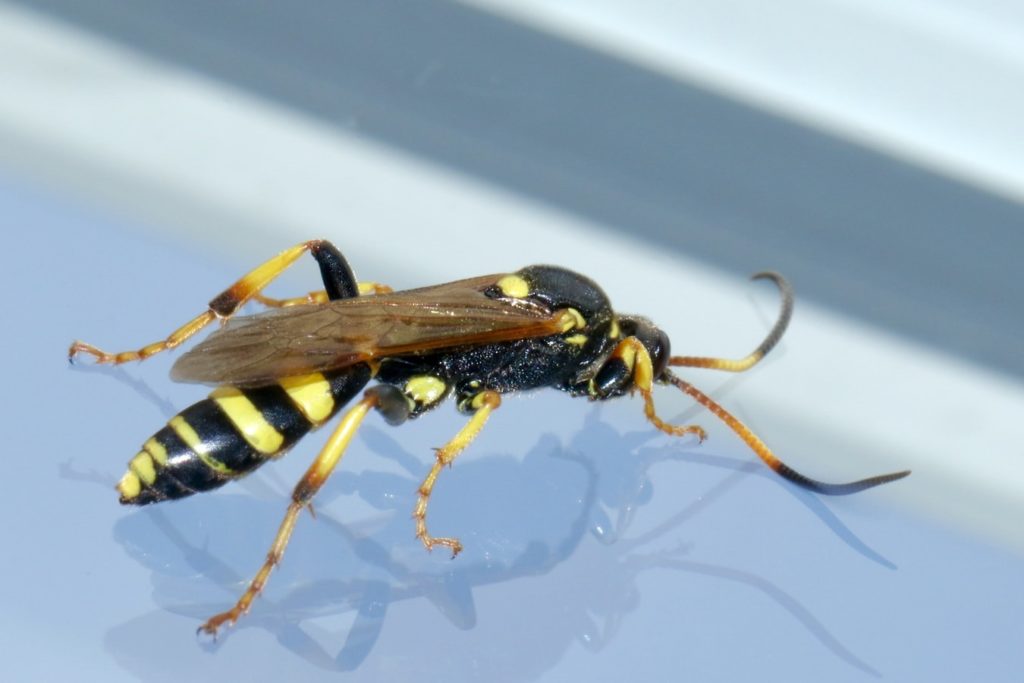Pest controllers specialize in getting rid of annoyances that can grow into big problems if not resolved.
These professionals eliminate roaches, rats and mice, ants, bedbugs, and termites from houses, buildings and surrounding areas. They inspect buildings for signs of pests, determine the correct treatment and provide a cost estimate. Without pest controllers, termites can destroy the wooden frame of a building. Rats would take up permanent residence, exposing the people in a building to potential diseases and, well, the repulsiveness of rats. Roaches are unsightly bugs that nobody wants in their home, yet even the cleanest kitchen in an apartment or condominium complex can become infested with roaches if the next-door neighbors are slobs who leave food waste exposed.

Pest controllers solve these problems. To do this work you’ll need special training and certification, as well as a license. That’s because the job often involves handling toxic chemicals, so there are safety procedures that must be followed. You’ll also need to learn more than you probably could have imagined about the habits, habitat and life cycle of the pests you’ll encounter on the job. You must know the enemy to defeat the enemy.
There’s good money to be made in pest control and the industry is projected to have ongoing demand for workers. Cockroaches are expected to outlast humanity on this planet, so pest controllers will always be needed.
Among the benefits of this work, you will provide peace of mind to property owners knowing they have made the right choice in you for protecting their investment from pests.
Read on to learn how you can make a good living as a pest controller.
In this article you’ll learn:
- How much money you can make as a pest controller
- The required training and certifications
- Professional groups to join
- Employment opportunities for pest controllers
- Finding clients
- Plus helpful tips
How much money can you make?
A pest controller on average makes $37,330 per year, according to the US Bureau of Labor Statistics. That breaks down to $17.95 per hour based on a standard 40-hour work week. The pay rate can be higher for weekend and on-call assignments.

Employment of pest control workers is projected to grow 7 percent through 2028, which is faster than the average for all US occupations. Job opportunities should be good because of the limited number of people seeking work in pest control and the need to replace workers who retire.
Training and Certification
All pest controllers in the United States come under the jurisdiction of the US Environmental Protection Agency and the Federal Insecticide, Fungicide, and Rodenticide Act (FIFRA). However, each state has an agency – typically the state’s department of Agriculture or Environmental Protection – that actually enforces the FIFRA requirements. You’ll need to contact your state’s pesticide agency or cooperative extension department to determine what specific licensing requirements apply where you live.

A state-by-state guide to licensing requirements can be reviewed here.
Regardless of the specifics in your state, you’ll need training in pest control in order to become certified and licensed.
There are many accredited training programs to choose from, both in-person and online. While online training is typically less expensive, there is less opportunity for hands-on learning and individualized instruction.
Pested is one of the best-known and accredited online training services. Whichever program you choose, be sure it fulfills the requirements needed to get your state license.
In most states, license applicants must pass at least two written examinations. The first is known as the core exam and tests on mastery of concepts common with all pesticide applications. This covers knowledge of rules and regulations, record keeping, the ability to read and understand label instructions, math skills needed to mix and apply chemicals properly, and knowledge of emergency procedures in case of a spill or other emergency.
The second written test is called a category exam. It focuses on the type of pest control you want to practice. The exam tests your ability to identify pests common within your specialty, the safety requirements for that type of pest control, and how to select and apply the appropriate pesticides used within that specialty under different situations.

Some states also require a passing score on oral or practical examinations for licensure.
What you’ll learn in training:
- Types of pests, where they prefer to live, how they reproduce and their life cycle
- Identifying the appropriate techniques for exterminating different types of pests
- Mastery of chemicals uses in pest control, as well as safety issues
- How to inspect a property for evidence of pest infestation, including entry areas (pipes, windows, doors, attics, garages, crawlspaces and cracks in the foundation)
- How to examine a lawn for evidence of pests
- Use of a moisture meter to detect signs of dampness where pests are drawn.
- Preparing reports and cost estimates for the job
- Communication skills with customers (learn how to explain the report findings, the extent of the problem and your proposal for getting rid of pests). This also includes discussion of safety issues such as removing pets while infested areas are being treated and keeping children safe from exposure to chemicals.
Professional Groups to Join
When customers and potential employers see that you are a member of a professional organization, it enhances your credibility and shows you are dedicated to your career. Joining a professional group also gives you access to continuing education opportunities, news and information to help you stay on top of the industry, and the ability to network with other members, who can share tips and insider knowledge of job openings.
The National Pest Management Association is the premiere professional organization for pest controllers. The association offers member networking, job listings, continuing education, frequent news updates and more.

Employment
General online searches of pest control companies in your area as well as focused searches on sites such as Indeed and ZipRecruiter will turn up job openings. Most job-search services will allow you to set up an alert with your geographic location so the job openings in your areas are sent each day in an email. Pest control companies, like most service-oriented businesses, still use the Yellow Pages to advertise their services, so don’t overlook old-school resources like the phone directory when job hunting.
Finding Clients
When you’re self-employed as a pest controller, you’ve also got to do your own promotion to ensure you have steady work. This means marketing your business. You’ve got to get your company name out there and build a reputation for yourself.
You’ll need a website. Something basic will do fine, just a page outlining your services and contact information, and a few pages of photos or illustrations of common pests.
Most printing companies can create a custom magnet sign you can attach to the side of your vehicle. The sign should include your business name, the fact that you offer pest control services, and a phone number to call. You can include your website address at the bottom. As your business grows and you become successful, you can eventually have your business information professionally painted on the side of your pest control van or truck – or your entire fleet. But in the beginning, a magnetized sign will be enough.

While you’re at the printing company, order some business cards with your company name, phone number and website address. If there’s room for a slogan or catchy motto, add that as well.
Customer retention is important, but satisfied customers will also refer companies they like to their friends. Keep your customers happy and you’ll enjoy repeat business for years to come. People tend to stay with companies they trust. Your business strategy should be to deliver on what you promise to the customer and get the job done right the first time.
As an incentive when you’re just starting out, offer customers a discount for referring new customers, then give those new customers a first-time discount. It’s cheaper than advertising and arguably better, because you’ll be getting new customers by word-of-mouth endorsement. People trust their friends to give them good advice.
Good to know
While you’re building your pest control business, one easy way to increase customer satisfaction and encourage referrals is to leave every client with a checklist of pest prevention tips. While it might seem counterintuitive to suggest ways customers can protect themselves from actually requiring your services, the reality is pests are not going away and there will always be demand for pest controllers.
Printing a checklist on card stock is inexpensive (you can do it yourself with a laptop and an inkjet printer). Then keep a supply of these cards in your van or truck. Hand 2 out to customers and encourage them to give one to a friend. The checklist can be as simple or fancy as you like. Common tips for pest prevention include:
- Keep roof gutters clean
- Always keep food covered
- Leave the lights on in basements
- Eliminate puddles and fix leaks (pests gravitate toward standing water more than anything)
- Reduce pest hiding spots (yard clutter and debris)
- Don’t store firewood close to the house
- Clean up storage areas
- Cap the chimney to prevent access by small animals and nesting birds
If you enjoyed this article, check out some more great PocketSuite.io content that can help you grow your career as a pest controller. Here’s a great place to start.
PocketSuite has thousands of business owners who all started where you are right now. Our community is always happy to help you ramp up, grow your client base, and achieve your income goals, both within the PocketSuite app and as part of our exclusive Facebook Community Group. PocketSuite’s vision is for any professional to be able to work for themselves and make a great living. It starts here. It starts with you. It starts today. Let’s get started, download PocketSuite now! Feel free to reach out with any questions (we’d love to hear from you)! Text us @ (415) 841-2300.





